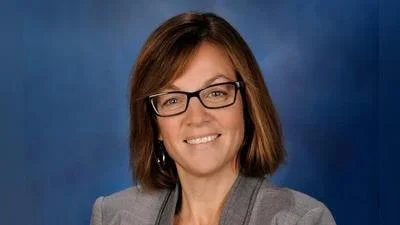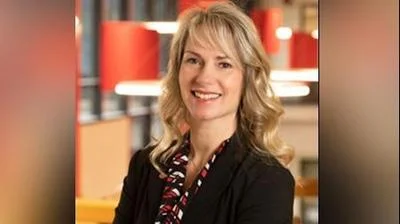Belleville Memorial Hospital issued the following announcement on July 14
Healthcare Heroes, Devoted Fighters, Dedicated Professionals...phrases commonly used to describe Memorial Hospital staff members who are unwavering in this unprecedented time.
As we reflect on the past year, it becomes increasingly evident that Memorial’s mission of “Providing exceptional healthcare and compassionate service” remains intact. Reviewing this journey leaves us awestruck by the power of illness and the resiliency of our patients, families, and caregivers.
History of COVID-19
COVID-19, caused by the SARS-CoV2 virus, was first identified in Wuhan, China, in December 2019 and was initially described as a pneumonia of unknown origin. Within four weeks, this virus demonstrated that it had no borders by appearing in 21 countries, including the United States. The initial U.S. cases were connected to overseas travel, cruise ships, or contact with someone who had been overseas. However, very soon, devastating outbreaks verified community spread. A global emergency was declared by the World Health Organization on February 11, 2020, and on March 11, COVID-19 became the first documented coronavirus pandemic in history.
This virus has impacted the lives and health of more than 80 million people worldwide. At the end of 2020, the U.S. accounted for over 20 million of those cases with Illinois seeing over 900,000 cases and more than 1,000 deaths.
Locally, St. Clair County has seen 16,684 cases with 280 deaths, and Memorial ended 2020 caring for 1,934 patients with 133 deaths. This unprecedented crisis has overwhelmed healthcare systems and placed a burden on all care providers.
Local response
Memorial’s local response to this virus focused on providing the best care for community residents and supporting the healthcare providers entrenched in the work. Memorial’s journey began March 11, 2020, when we cared for our first positive COVID-19 patient. Currently in wave three, Memorial has pushed forward through many challenges in medical management and care of COVID-19 positive patients.
Challenges in providing competent, compassionate care for these patients has proved to be multifaceted. Medical management, patient care, laboratory testing capabilities, regulatory reporting, supply gaps, financial strain, and staff burnout were all areas of great concern. Healthcare workers can attest to the warp speed in which COVID-19 evolved. Memorial Incident Command Center, in cooperation with BJC HealthCare Incident Command, led the efforts for the pandemic response.
One of the earliest barriers Memorial Hospital faced was the inability to test for the virus. Initial testing constraints included testing through the state of Illinois and only if very stringent criteria for testing were met. While testing continues to be of concern, the initiation of multiple COVID-19 testing methods has allowed for a more comprehensive testing program. Memorial forged ahead early and trusted that the collaborative effort with BJC would bring testing capabilities in a short time. Priority was given to opening a testing site to serve the community and Memorial employees. Ultimately, Memorial became the first in the BJC system to open a drive-through testing center, which continues to operate today.
Proper use of personal protective equipment (PPE) was challenging as the recommendations changed quickly and were often in opposition to previous recommendations. Initial guidelines provided by the Centers for Disease Control and Prevention (CDC) were not to wear a mask. Those who had respiratory symptoms and those caring for patients with respiratory symptoms needed to mask, otherwise it was felt unnecessary. By mid-April 2020 the spread of COVID-19 from patients and staff with no symptoms or just prior to symptom onset was recognized as a major contributor to the spread of COVID-19, and universal masking began to take shape. Memorial became an early adopter of universal masking but also recognized the perils of aerosol-generating procedures when an outbreak occurred among staff and patients on a nursing unit. Masking recommendations at Memorial were modified to include respiratory protection appropriate for these types of concerning treatment modalities; BJC soon followed suit.
Memorial was not immune to the national PPE shortage. The materials management team worked continuously to secure adequate PPE for all staff. Lack of protective gowns meant that nurses used the same gown from one COVID-19 patient to the next prior to removing. Lack of masks required staff to place their mask in a paper bag and reuse it for several shifts. BJC was able to do mask decontamination for a short period of time, and this helped alleviate some concerns in mask reuse. Several local businesses assisted by printing and donating 3D face shields. Cleaning supplies dwindled, requiring staff to use alternative products, which took a substantially longer time to attain proper disinfection. Donations from the community and other medical providers also helped bridge the gap.
Patient care looks and feels different during a pandemic. Providing care for these patients has required flexibility and resiliency. Until very recently, ambulatory patients entered the hospital through a tent and were triaged as “potentially infected or no infection concern.” Many were treated and discharged directly from the tent and never entered the facility. While this process has moved indoors, it continues to be a mainstay of limiting patient congregation in the emergency department. Care teams were challenged by the severity of the illness as those arriving through ambulance services tended to have a more severe illness as patients delayed seeking care in fear of entering a hospital.
Early in the pandemic, many local nursing care facilities experienced outbreaks of COVID-19 leading to increased patient volumes that put strain on the staffing pool. Late in the year, the care center population has continued to present; however, a younger population of patients infected through community spread has now added to the patient volume.
Dedicated COVID-19 units were designated within the hospital and at Memorial Care Center to limit exposures and concentrate resources. Staff nurses from both hospitals staffed the COVID-19 units, while staff from various other areas were redeployed to these units to assist the nursing staff with tasks and assure PPE was applied and removed correctly.
Facilities management supplied filtration systems for individual rooms to scrub the air, thereby decreasing the likelihood of staff becoming ill. To limit staff exposures to ancillary departments, nursing took on all tasks in the care of patients including drawing labs, respiratory treatments, delivery of food trays, and daily cleaning of the room.
Nurses quickly learned new medications and treatment modalities. The dedicated COVID-19 floor staff became the experts in COVID-19 care and can attest to how quickly this virus can cause patient conditions to deteriorate.
Following CDC recommendations, visitors were significantly reduced and at times not permitted at all. It became common for patients and families to communicate through media resources. Many goodbyes occurred with a nurse at the bedside holding an iPad.
Triumph over the disease is declared with each patient downgrade in level of care and the victory march of a discharge will forever be a part of the Memorial family. Journey’s “Don’t Stop Believin’” plays throughout the house as COVID-19 patients are discharged from the hospital.
Support from the community
The community rallied around Memorial’s staff throughout the pandemic. Donations, prayers, and well wishes were abundant. Staff participated in prayer gatherings to maintain their resiliency. There was a flyover by Scott Air Force Base to recognize the work of our healthcare providers. Many yard signs and social media posts were shared saluting healthcare workers. Staff received many home-cooked meals, bakery items, and treats from community members or local businesses. Personal handwritten thank you cards were received from multiple schools and churches. Staff received much-needed neck and back massages by local chiropractic clinics, giving them a moment to be still and a few minutes of respite. They also enjoyed musical instruments and singing by other Memorial employees as they arrived to work or during their shifts within their units/ departments. Memorial’s staff have supported, assisted, and befriended each other through this difficult time.
Memorial Hospital staff know what resiliency looks and feels like as they continue to provide exceptional healthcare and compassionate service. The World Health Organization declared 2020 as “The Year of the Nurse and Midwife.” It certainly has proven to be the year that all caregivers have risen heroically and collaboratively to serve the community.
As the vaccine is administered, it is with optimism that all of us continue to push forward.
Original source can be found here.






 Alerts Sign-up
Alerts Sign-up